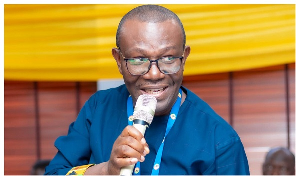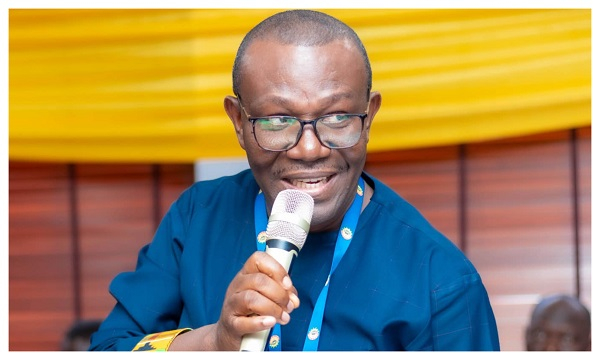 Chairman of the Energy Committee, Emmanuel Kwasi Bedzrah
Chairman of the Energy Committee, Emmanuel Kwasi Bedzrah
The government has mounted a strong defense of the newly introduced Energy Sector (Amendment) Bill, 2025, following criticism from the minority in Parliament, who allege that the administration misled the public about the levy.
Addressing a press conference on June 10, 2025, the Chairman of the Energy Committee, Emmanuel Kwasi Bedzrah, dismissed the claims as “false, misleading, and politically motivated,” insisting that members of the minority were fully present and actively participated in committee deliberations on the bill.
“All members from the minority side in the Finance Committee and all the leaders from the Energy Committee were present during discussions on the Amendment Bill. No one walked out; they were all there. A majority decision was taken. How then can you organise a press conference to claim you were not informed or consulted?” he asked.
The Energy Sector (Amendment) Bill introduces a GH¢1 levy on every litre of refined petroleum product purchased.
According to Bedzrah, the measure is a strategic and responsible way to generate funds to support the financially struggling power sector without overburdening consumers with high electricity tariffs.
Currently, Ghana’s power generation is dominated by thermal plants, which rely on expensive liquid fuels.
Government data indicates that over US$1.2 billion, approximately GH¢12.6 billion, is spent annually on liquid fuels to keep the lights on.
However, these costs are not reflected in electricity tariffs.
The Public Utilities Regulatory Commission (PURC) has warned that incorporating the full cost of fuel into electricity tariffs would lead to a 50% increase in consumer bills, a scenario government officials say they are determined to avoid.
“The President has made it clear; we do not want to increase electricity tariffs. Instead, we have chosen a modest levy that will raise around GH¢5.7 billion annually, while government funding will cover the rest,” Bedzrah explained.
He also pointed to recent significant reductions in fuel prices, noting that pump prices have fallen from over GH¢16 per litre in January to about GH¢12 per litre.
“Even with the levy, fuel remains cheaper than it was earlier this year,” he emphasised.
Defending the government’s decision, Bedzrah stressed that the bill is essential for ensuring long-term energy security, maintaining a stable electricity supply, and clearing mounting debts in the energy sector.
As of December 2024:
• The sector’s power-related debt stood at US$ 3.1 billion.
• Over US$ 1.7 billion is owed to Independent Power Producers (IPPs).
• The power sector is running a monthly deficit of GH¢2 billion.
“This is not a deception. It’s a reality-based intervention to avoid erratic power supply while shielding Ghanaians from unsustainable tariff increases,” he said.
He reiterated the government’s commitment to transparency and responsible governance, urging the public not to be swayed by what he called “misleading soundbites” from the opposition.
“Ghanaians deserve stable power, sound economic decisions, and a government that plans for the future, not one that plays politics with electricity,” he stated.
MRA/MA
Watch as Muntaka Mubarak criticises Afenyo-Markin in Parliament
